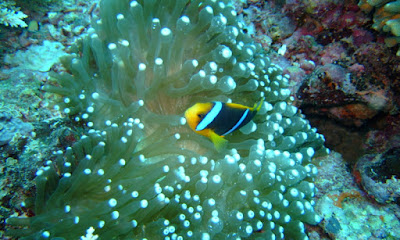9 Best Tips For Longer Sustainability During Scuba Diving
Learning Scuba Diving is a wonderful hobby. If you are not a regular diver or dive after a longer interval. It’s common that you may forget some tips and techniques of scuba diving and how to stay underwater for a long time…
Don’t worry, here we have 8 tips for scuba divers to dive safely. If you are in Fiji or planning to visit for spending vacation, keep in mind, Scuba Diving in Fiji is the most famous activity. Even a beginner cannot miss the chance to go deep into the sea and explore the new underwater world. So, let’s know some easy ways for Scuba diving and stay in water for many hours.
1. Check Your Weight Before Diving
In the beginning of diving, it is essential to check diver’s weight. Being a professional you know the importance of weight. But if you are new learner, remember, frequent weight checks are necessary. This can help you to know weight lose the position. Bear in mind, while diving for perfects cuts, up and down moments that can make your experience much better.
2. Investigate Equipment From a Safety Point of View
Having safe equipment are another crucial part of diving. Therefore, before going to start diving, check everything must be properly serviced and maintained properly. Inspect dive computer and underwater torch and batteries. If you are diving with a buddy, cross-check each other’s equipment. This will double sure you for safety in the sea.
3. Equipment Testing is Important
If you do not want to struggle with new equipment problem in the deep sea, it’s better to test them during an easy shallow dive first. Divers can also take assistance from swimming pools for the best testing option. Remember, it’s all in your favour to test devices in controlled conditions rather than jumping into deep-sea directly. Basically, in new devices failure issues are seen hardly, but this does not mean you can avoid a safety.
4. Find Out Current Favourable Conditions
Deep diving into the sea can prove to be hardest if you are unable to predict sea conditions. Therefore, it is highly important to know deep surface conditions, this will help you to decide over boat launches. The favourable water conditions are important for proper diving and selecting wet suit type. Ask for water temperature, as too hot or cold both effect. Next important thing is to check visibility and currents effect. All these can be problematic if you do not pay attention prior to diving.
5. Prefer Dive Within Limits
In any condition, it is prohibited to go while diving beyond particular limits. If you are only eligible to dive under certain depth, be sure you won’t exceed your limit. In Fiji, there are strict laws related to diving. So, in a new country do not take chance to play with other nation rules. For this, you may need to obtain an additional certificate.
6. Learn All Diver’s Signals
Before enjoying the marine life, it is important to learn all signals of scuba diving. Among all hand-signals are most important to communicate with each other. Especially, if you diving with a buddy, practice hand-signals with a buddy before entering into the water. Otherwise, it could be risky when both unable to understand each other in the sea.
7. Do Not Feed Fishes
It seems nice and helpful to feed fishes with the pieces of bread. But unfortunately, this also makes them dependent on external food, as a result, these ignore natural food and it’s nutrients. Even by throwing food in the sea become a reason for feeding dam selfish that graze on the algae to survive.
8. Take Photo With Extra Care
Researches have shown then divers come into the sea with cameras to capture beautiful views underwater. Keep in mind, use it in a proper way, where it won’t affect your diving. There are high chances of breaking cameras while shooting. So always give proper support to the camera, if you are going to place it somewhere.
9. Do Not Wear Gloves
Shopping for gloves in another misconception among divers. Some believes that extra layer on diver’s asking gives them a false sense of security. In reality, gloves are avoided in the connection that if diver feels safer, he won’t think twice before touching the reef. This technique gives them space between reef and their safety. But If you’re worried about stings and cuts - take one glove to hold on to the line and keep it in your pocket until you ascend
Hope the above information proves to be healthy and you can enjoy scuba diving during vacations in Fiji. Have lots of Fun!!





Comments
Post a Comment